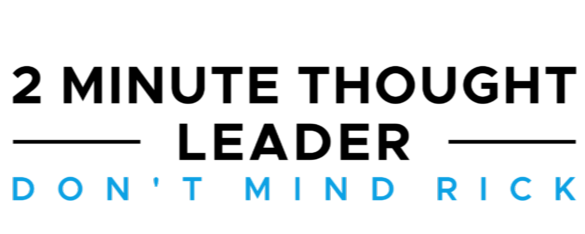If you focus on failure, you push away learning

“You need to fail fast.”
“embrace failure”
“Failure is a good thing.”
It is easy to write down more of these platitudes and motivational quotes that sound like good advice but aren’t. Since if you focus on failing, all you get is a failure. You get those 100 ideas that do not work, not the one that does. There is no need to glorify failure.
Nature doesn’t embrace failure. Evolution builds upon success and not on failures. Failures disappear. And that is the thing you should do: build upon success, not on failure.
Words Matter
It is not about failing. It never was. What it is about is learning. However, that doesn’t sound as sexy and as a struggle. Of course, you can brush this off as a simple play of words, though words matter. There is a massive difference between “I stopped smoking” (you stopped doing something) and “I am not a smoker” (you stopped being a particular type of person).
When you need to embrace failure and fail fast, your eyes and mind are on failing and not on the learning experience it brings you.
Failing was too easy anyways
Failing is that you need to do something that does not work. However, if this is the approach, you only know one thing: it does not work. Which only leaves you with 10,000 more options to explore that do not work.
And of course, I know that Thomas Edison said:
I Have Not Failed. I Have Just Found 10,000 Things That Do Not Work.
But did he find 10000 things that did not work? Or did he find something he did not know in every failure and learn from it? I assume Mr Edison would be as happy if he had managed to stop after 100 things that did not work or when it had taken 50,000 iterations since he was learning every time.
You either learn or find the solution
You need to experiment when you do not know if it will work. There is no use in experimenting (or failing if you want to persist on this language) when you already know it works or is not going to work. The outcome of an experiment is not either “it works” or “it does not”. Since “it does not” is not a scenario.
“it works or not” does not have to be that binary. It would be best if you were open that either it works (wow, fantastic you are done) or when it does not deliver the expected outcome, be curious about what it does, why it does this thing, how did you get there.
By going from either it is a success or a learning, you move from either it is a success, or it gives me insights on why we ended up here and not in the place I expected (and often in science, discoveries start with ending up in a very different place than expected, sometimes even by accident, such as penicillin)
Fall in love with learning for the future you
To learn to open yourself up to be creative, writer Mo Willems said once:
Creativity opens you up to brand-new worlds. It doesn’t open anything up to brand-new worlds. You don’t know what it opens you up to. It’s not a line from A to B. It’s a line from A to strawberry pizza.
Mo Willems
Suppose you stayed in your binary flow of failing and succeeding. You would only see that it was either a line from A to B or not. You would have missed out on the discovery of strawberry pizza. Is that pizza the thing you need now? Most likely not, though that is the beauty of learning: it stays with you, and whenever the moment is there, and there is a considerable demand for strawberry pizza, you are the one who was open enough to learn about it. The more you spend time running experiments exploring, and learning, the opener you make your mind to new ideas.
Work on your language
Make the implicit explicit. You are not looking for more failures. You are looking to learn. Talking about failure will get you that: one more thing that does not work. And that is where you will stay if you do not learn.
Success comes from persistently improving and inventing, not from persistently doing what’s not working.
Derek Sivers
If you focus on “failure”, you only do a binary evaluation of experiments. It works or doesn’t. When you concentrate on learning, you do precisely the opposite: you are opening more and more doors for now and for the future.
